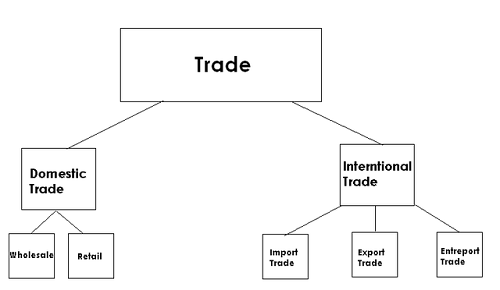Difference between Domestic and International Business
Business is the act that results from trading between any two given entities for the value of goods, products, or services. In every business deal, currency is the medium of leverage that gives a willing buyer the power to acquire a product or service that is available from a willing supplier.
Geographical limitations can define how a business scales in the local context and in the international context as well. In the current days where the internet has empowered the process of globalization, more and more international business activities have taken place. The local business remains in the context of practicing trade within your country.
Definition of Terms
Domestic business is the kind of trade that is limited geographically within a country. A domestic business involves commercial exchanges that are only done within that country (1). A domestic business which can also be referred to as an internal business involves a producer and a client, who live within the same nation. This means that the laws, business practices and customs used in a business transaction shall be of the designated country.
International business on the other hand is a business whose production and consumer base is drawn from more than one country (1). An international business does not fall so much to the dispensation of local law, but within international agreements for business practice. International business involves transactions between two or more than two countries.
Comparison between Domestic and International Business
- Both types of business involve a trade exchange between a willing buyer and a willing seller. Unless the two entities of the supplier and the consumer agree to do business, there will not be any transaction proceeding.
- Also, business in both disciplines is completed after an agreement is made over the currency to be used.
- Some local business may opt to receive payments in foreign currencies, just as how international business depend on foreign currency to harmonize trade.
Key Differences
While domestic business is defined with the view of geographic limits in mind, international business is not limited, and exceeds beyond geographical limits of a country (1). As well, while the international businesses operate over a wide scope of supply and consumerism between many countries, domestic businesses only stick to providing and facilitating limited exchanges between the people in a given country.
At the same time, domestic businesses do not have to be very cautious or stringent on the quality of products. International businesses must ensure, and maintain very high standards in the quality of products or services offered. The standards applied should fit the standards that are accepted globally.
Another difference between the two kinds of business stems in the capital and currency involved. In most cases, a domestic business costs less to establish, and generally performs trade using local currency (2). On the other hand, international businesses ask for a lot of money, but they depend on foreign currency to harmonize their trade.
In the perspective of research done prior to the commencement of production operations, domestic business have an easier approach in doing consumer research, while determining the best product to use (2). An international business must research extensively, for the sake of understanding what the consumer demands, and behavior- when trying to establish the viability of the business.
Lastly, there are many factors that affect the production of a commodity or service by a business owner. In the context of domestic businesses, the mobility of these factors is easier to achieve, more than how you would achieve the mobility of production factors for international businesses. Things such as transport, and installation of production implements is far easy to achieve in a domestic business than in international business.
Summary
| Topic | Domestic Business | International Business |
| Geography | Happens within one country. | Can happen in more than one country. |
| Quality of products/ services | Standards may be lower. | Very high standards are expected and enforced. |
| Currency | Mostly depends on local currency for transactions. | It depends on foreign currencies for transactions. |
| Research | It is easy to conduct research for the business. | Research processes for the business is very expensive and hard to conduct. |
| Investment | The capital investment is not as high. | Capital investment is extremely high. |
| Production factors | There is free and easy movement of the factors of production. | The movement of production factors is limited. |
Conclusion
It is easier to conduct a domestic business than it is to conduct an international business. While international trade would favor a domestic business in increased returns, there are many factors, including politics that prevent the expansion of businesses onto a global scale.
- Difference between Traditional Commerce and Ecommerce - February 16, 2018
- The Differences between Copay and Deductible - February 6, 2018
- Differences between Personal Property and Real Property - January 29, 2018
Search DifferenceBetween.net :
1 Comment
Leave a Response
References :
[0]Sigfusson, Thor, and Simon Harris. "Domestic Market Context And International Entrepreneurs’ Relationship Portfolios." International Business Review, vol 22, no. 1, 2013, pp. 243-258. Elsevier BV, doi:10.1016/j.ibusrev.2012.04.008.
[1]Spence, Martine et al. "A Comparative Study Of International And Domestic New Ventures." Management International Review, vol 51, no. 1, 2011, pp. 3-21. Springer Nature, doi:10.1007/s11575-010-0065-9.
[2]"Image Credit: https://en.wikipedia.org/wiki/Domestic_trade"


Thank you so much and wish you all the best